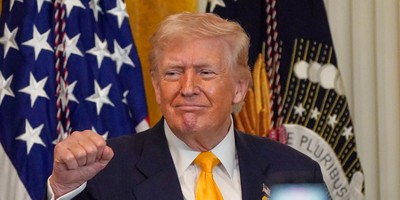They've already determined that no Americans will be be granted access to their country as part of international inspections teams under the terms of the US-led nuclear accord, and they've already told the IAEA they
Advertisement
A senior Iranian official declared on Monday that international nuclear inspectors would only be permitted into the country once they receive approval from the Islamic Republic’s Intelligence Ministry, putting another roadblock between the International Atomic Energy Agency (IAEA) and Iran’s contested nuclear sites. Sayyed Abbas Araqchi, Iran’s deputy foreign minister and one of the top negotiators in talks that led to the recently inked nuclear deal, told the country’s state-controlled press that Iran’s intelligence apparatus must approve of any inspector who is issued a visa to enter Iran. This requirement could complicate efforts to prove to the world that Iran is being fully transparent and that nuclear inspectors inside the country are neutral. Iran has already stated that no American inspector would be permitted into the country under the deal. The accord also grants Iran a 24-day notice period before inspectors enter any site suspected of being used for nuclear weapons work. “Any individual, out of IAEA’s Inspection group, who is not approved by the Islamic Republic of Iran cannot enter the country as the agency’s inspector,” Araqchi was quoted as telling the Islamic Consultative Assembly News Agency (ICANA), a government news outlet, according to a translation performed by the CIA’s Open Source Center (OSC). This type of screening is fully permitted under the nuclear accord, Araqchi said.
Recommended
Advertisement
Despite President Obama's dishonorable demagoguery, there are many sound reasons opponents of the deal -- including a majority of Americans, most members of Congress, Israel, many Arab state governments, and potentially Canada, to name a few -- have cited to forcefully advance their position. As the political media wonders whether Congressional Democrats will marshall the votes to sustain an Obama veto of an inevitable resolution disapproving of the agreement (the math is in the White House's favor on several levels), the Associated Press wonders if even a veto override would prevent the president from unilaterally imposing his dangerous legacy project:
The September vote on the Iran nuclear deal is billed as a titanic standoff between President Barack Obama and Congress. Yet even if lawmakers reject the agreement, it's not game-over for the White House. A congressional vote of disapproval would not prevent Obama from acting on his own to start putting the accord in place. While he probably would take some heavy criticism, this course would let him add the foreign policy breakthrough to his second-term list of accomplishments...The president could suspend some U.S. sanctions. He could issue new orders to permit financial transactions that otherwise are banned now. On the financial sector, Obama could use executive orders to remove certain Iranians and entities, including nearly two dozen Iranian banks, from U.S. lists, meaning they no longer would be subject to economic penalties. Only Congress can terminate legislative sanctions, and they're some of the toughest, aimed at Iran's energy sector, central bank and essential parts of its economy. Still, experts say Obama, on his own, can neutralize the effect of some of those sanctions, too, and work with the Europeans on softening others. "Obama can give most of the sanctions relief under the agreement through executive order," said Mark Dubowitz, a leading sanctions proponent with the Washington-based Foundation for Defense of Democracies.
Advertisement
It probably won't come to that, given the calculus behind Obama's dubious decision not to present this international treaty to Congress as just that -- a treaty. Incidentally, the one Senate Republican the White House was lobbying to persuade announced this week that he'll be voting no, along with all Republicans and a significant number of Democrats. Obama's persuasive powers are as redoubtable as ever:
New Fox poll: Should Congress approve or reject #IranDeal?
Approve: 31%
Reject: 58%
Almost identical to Q-poll.
— Guy Benson (@guypbenson) August 14, 2015
























Join the conversation as a VIP Member